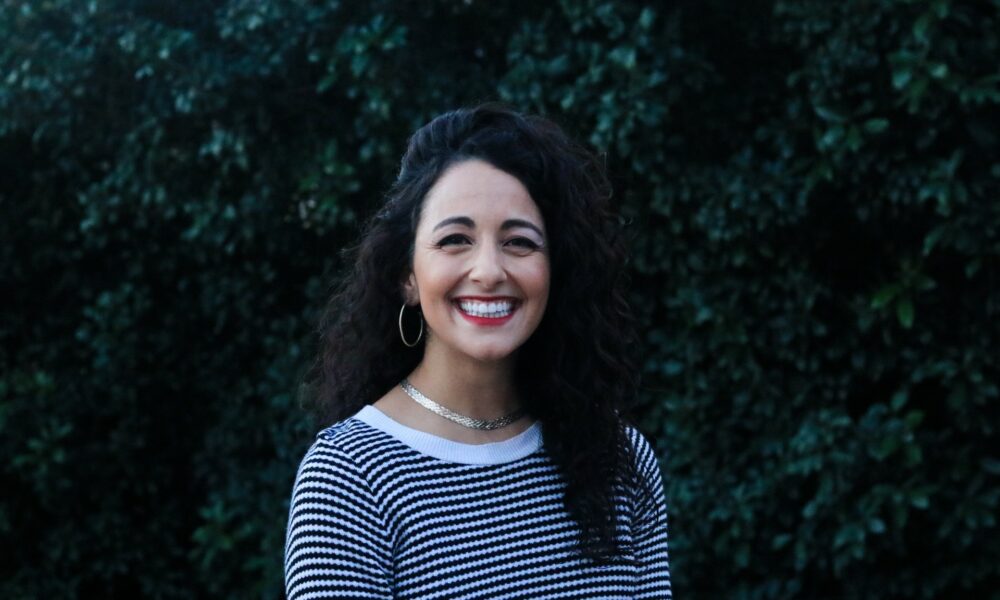

Today we’d like to introduce you to Emily Nader.
Emily, we appreciate you taking the time to share your story with us today. Where does your story begin?
I feel so grateful that being a therapist just truly feels like being an extension of myself. I was always fascinated by psychology and other people’s stories. I loved being the one that people felt safe enough to turn to be a listening ear. An added factor is that I am a child of immigrants (my dad was born in Lebanon, and my mom was born in Mexico), but I grew up in the United States in a tiny town in Virginia. So- needless to say, I didn’t know anyone else that had my story or experience. That’s why I think I loved learning about others; everyone had a different experience than I did. And mental health wasn’t really discussed in my culture, even though I saw the need for it, even in my own family. We ended up moving to Texas during my junior year of high school, where I later graduated with my degree in Psychology at Baylor University and my master’s in counseling from Southern Methodist University. My first job right after graduate school was as a school counselor at a charter school in Austin for middle and high schoolers. I loved working with kids and teens, but I realized that my passion was in private practice with adults in their 20s and 30s. Because my husband is military, my practice is now completely virtual, which gives me the flexibility and freedom to meet with anybody in Texas!
We all face challenges, but looking back, would you describe it as a relatively smooth road?
I received my full license to practice counseling in March 2020. So, right after I had the “clear light” to practice on my own without a supervisor, pandemic hit. I was still at my school counselor job, which then clearly had a lot of obstacles to meet with children when virtual school was trying to get figured out. So, I started my online private practice as part-time job. I only had the capacity to see a few clients at a time, which was a blessing. Looking back, I needed a steady “full-time job” to give myself that permission to not put so much pressure on clients right away and all at once. So, whenever I was ready to leave my school job, move away from Austin, I already had a steady number of clients. But being your own boss can be an isolating journey. I’ve had (and still do at times) to overcome this deep sense of imposter syndrome and wondering if “I can really help.” In fact, my first encounter with my own therapy journey was my first day in the ‘real world’ as a therapist while I was still in graduate school. I had an internship at a group counseling practice in Plano, and before I even saw my first client, I woke up with pounding anxiety. I knew I had to seek out therapy to process why I deeply believed “I wasn’t good enough.” And I will never forget that journey at that practice because a client, in particular, told me that therapy with me was helpful in a way therapy had never been before because I saw them as “a person” and not just a number. This client could tell that this was more than just a “job,” and I truly cared about their story – and that was so healing for them. I have not forgotten this, even 6-7 years later. It shows the transformational power of just deeply caring for somebody else. Sometimes therapists can get wrapped up on every “theory” knowing every single thing (which I do love learning and am constantly learning), but when I get anxious again about not feeling ‘good enough,’ I always come back to my “why” in the first place – to truly make a difference in someone else’s life. And it’s helpful to know that other therapists can struggle with “imposter syndrome” too, or anxiety and that we’re all still humans, too, at the end of the day!
Great, so let’s talk business. Can you tell our readers more about what you do and what you think sets you apart from others?
In my therapy practice I work with adults in their 20s and 30s overcome the people-pleasing cycle to help them find their authentic voice, speak up with confidence, and set healthy boundaries without the guilt. People-pleasing is oftentimes something that stems from childhood to keep us “safe” so I love diving deep into the origin story and helping my clients develop a stronger sense of self. And as an adult child of immigrants, I absolutely love working with other adult children of immigrants as well. Because oftentimes, this theme of people-pleasing is engrained from a cultural perspective, too. I am most proud of the fact that my “target audience” is also very true to who I am. As a self-proclaimed “recovering people-pleaser” and a child of immigrants, I deeply know my client’s pains, struggles, and perspectives. I, too, struggled to figure out who I really was, relationships, what culture meant to me, etc., and now am at a point in life where I am in a very healthy marriage with someone outside of my culture, but I make space for my culture in my marriage, have healthy boundaries with my parents, and truly live myself in an authentic way – regardless of outside opinions. I want my clients to also experience the same freedom of expression and a deep inner peace. I want readers to know they can be kind and true themselves at the same time. I am so passionate about the topics of people-pleasing (especially with a cultural lens) because it used to completely rule my life, without me fully knowing it. I offer virtual therapy services for all those that live in Texas, and I’m about to create my own signature course on people-pleasing and offer 1:1 coaching and group coaching in conjunction with the course. So, I am excited about that offering to help and serve more people!
Where do you see things going in the next 5-10 years?
I do foresee a lot of therapists start to offer coaching services as well – which is something that is in the works for me! Because, as therapists, we are limited to only practicing to one state, coaching allows you to work with people all over the world. I will still offer therapy because therapy is a deeper dive into our past and healing from past traumas, and then coaching gets to really focus on moving forward and tangible skills (which still happens in therapy). However, coaching is just more specific to our present and moving towards our goals with a more specific time frame of working together (usually 3 months), whereas therapy can be more looser on a timeframe. I think both modalities are needed and appropriate, but I have seen a lot of my colleagues start to offer this because I think therapists do make amazing coaches! Most coaches don’t need any formal training, and we have a lot of years in experience of helping others grow towards their goals. I am excited to create a course that can be coupled with coaching because, for me personally, I love learning and growing with some more structure, videos, and work I can do throughout the week & with added support! I think this trend of courses and coaching is here to stay.
Pricing:
- 1:1 Therapy $150
- Aetna & UnitedHealthCare insurance accepted
Contact Info:
- Website: www.cedarroots-counseling.com
- Instagram: @empathywithem













